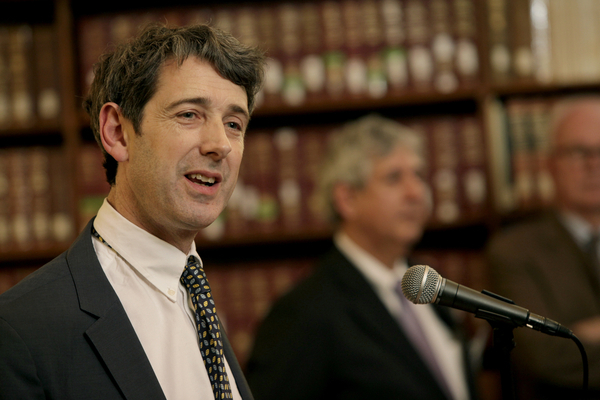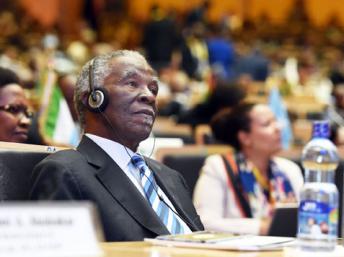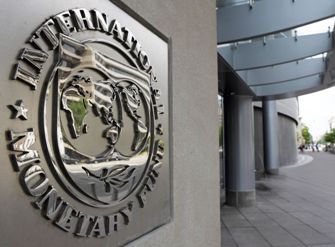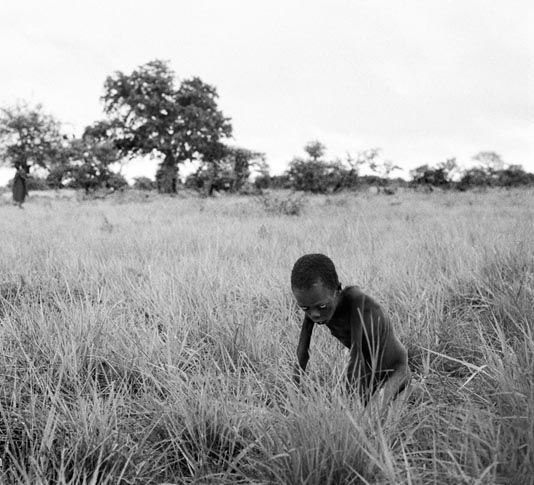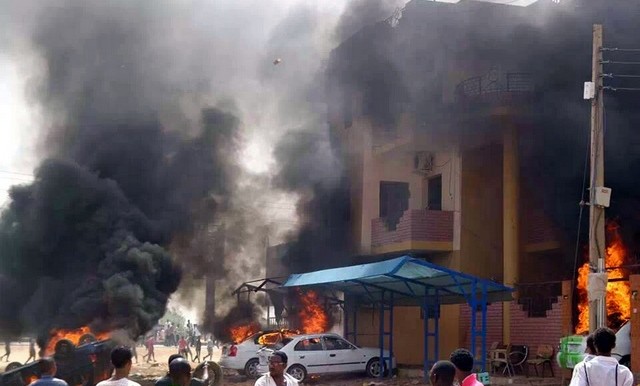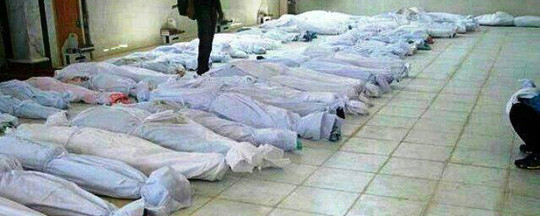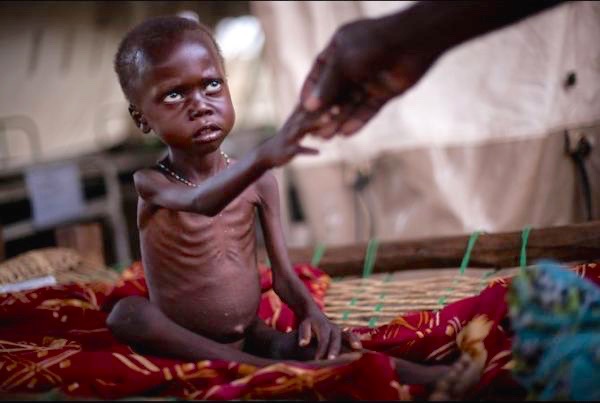Eric Reeves | May 7, 2016 |┬Āhttp://wp.me/p45rOG-1Tehttp://wp.me/p45rOG-1Tehttp://wp.me/p45rOG-1Te
A video from April 2014, with clips of Day 2 of the┬ĀThird Tana (Madagascar) Forum on Impact of Illicit Financial Flows on Peace and Security in Africa┬Ā(April 27, 2014) has recently gained wide circulation among SudaneseŌĆöand with good reason (seehttps://www.youtube.com/watchž¤v=SHwMkcPPBCwandsns=fbandapp=desktophttps://www.youtube.com/watchž¤v=SHwMkcPPBCwandsns=fbandapp=desktophttps://www.youtube.com/watchž¤v=SHwMkcPPBCwandsns=fbandapp=desktop).
For in speaking of the years from 1989ŌĆöwhen the National Islamic Front (NIF) came to power by military coup, making General Omar al-Bashir presidentŌĆöto 1999, when oil revenues came on line for the regime, Alex de Waal can be seen declaring during one clip, with al-Bashir directly before him:
ŌĆ£If there is a ŌĆśNobel Prize in Financial ManagementŌĆÖ┬ĀI think it should go to you.ŌĆØ
De Waal evidently claims he was speaking ŌĆ£sarcastically.ŌĆØ ┬ĀThis canŌĆÖt be true: the savagery of ŌĆ£sarcasticŌĆØ tonality is nowhere in evidence in the clip;┬Āirony┬Āis the trope he evidently means to invoke by way of justifying his comments. ┬ĀIronically (we are to believe) marveling at how al-Bashir ran the government of Sudan for ten years on a budget of less than $1 billion per year, de Waal of course finds it unseemly to make mention of a very great deal about those terrible years that occurred ŌĆ£off budget,ŌĆØ including the┬Āgenocide in the Nuba Mountains┬Āwhich de Waal himself helped publicize to the world, the utter savagery of theŌĆ£oil warsŌĆØ in what was then Western Upper Nile┬Āin South Sudan, and the ramping up of the slave trade as a weapon of war in┬Āgreater Bahr El Ghazal.┬ĀThese arenŌĆÖt quite in the spirit of the ŌĆ£good funŌĆØ by which an indicted┬Āg├®nocidaire┬Āis conferred a facetious Nobel laureate.
Alex de Waal
Indeed, it was de Waal himself who put the case for serial genocide under the National Islamic Front/National Congress Party regime in stark terms in┬ĀAugust 2004:
But [counter-insurgency in Darfur]┬Āis not the┬Āgenocidal campaign of a government at the height of its ideological hubris, as the 1992 jihad against the Nuba┬Āwas, orcoldly determined to secure natural resources, as when it sought to clear the oilfields of southern Sudan of their troublesome inhabitants. This is the┬Āroutine cruelty of a security cabal,┬Āits humanity withered by years in power:┬Āit is genocide by force of habit.┬Ā(ŌĆ£Counter-Insurgency on the Cheap,ŌĆØ┬Āhttp://www.lrb.co.uk/v26/n15/alex-de-waal/counter-insurgency-on-the-cheapLondon Review of Books,┬ĀAugust 15, 2004)
One might have thought that such views would have permanently precluded even ironic exchanges with the man most responsible for ŌĆ£genocide by force of habit.ŌĆØ
Of course, de Waal conveniently now argues that genocide is an inaccurate term for what has occurred in DarfurŌĆöa change in assessment that made it much easier for him to serve as advisor to the┬ĀAfrican Union┬Āin the┬ĀAbuja (Nigeria) peace talks┬Ā(the African Union is adamant that Darfur is┬Ānot┬Āthe site of genocide). Abuja yielded the┬ĀŌĆ£Darfur Peace AgreementŌĆØ (DPA), which failed miserably, despite de WaalŌĆÖs claims to the contrary. This failure did not, however, prevent de Waal from returning to the Darfur file as primary advisor to┬ĀThabo Mbeki┬Āof the African Union in┬Ā2009. Mbeki remains chair of the utterly dysfunctional┬ĀŌĆ£African Union High-Level Implementation PanelŌĆØ (AUHIP). Indeed, there is another perverse ŌĆ£ironyŌĆØ in this designation of an ŌĆ£implementation panel,ŌĆØ since ŌĆ£implementationŌĆØ was to have been of MbekiŌĆÖs┬ĀŌĆ£roadmap for peace in Darfur,ŌĆØ┬Āa ŌĆ£roadmapŌĆØ that led absolutely nowhere.
The hopelessly incompetent Thabo Mbeki, lead African Union negotiator on peace for greater Sudan; he has nothing but failure to show for the past eight years
But it should be noted that whatever his claims about tone (and ŌĆ£sarcasmŌĆØ is not the same as irony), de Waal is using al-BashirŌĆÖs Sudan as an example of something he takes very seriously: the claim that when national budgets of African countries go up, so too do the chances for peace. And Sudan is his prime, non-ironic example: de Waal argues that the rise in the national Sudanese ŌĆ£budgetŌĆØ of 1999 (under $1 billion) to that of 2006 (over $11 billion, according to de Waal) is what made possible the Comprehensive Peace Agreement between the al-Bashir regime and the southern┬ĀSudan PeopleŌĆÖs Liberation Movement/Army (SPLM/A).
But here de Waal is guilty of more that exceedingly ill-timed and ill-conceived jesting. He seems stunningly na├»veŌĆöor cynicalŌĆöin failing to note the almost complete opacity of the ŌĆ£budgetsŌĆØ of the ŌĆ£governmentŌĆØ of Sudan over the past 27 years. For it has long been clear to all informed observers that what appears in the promulgated ŌĆ£budgetŌĆØ of what is now theNational Congress Party┬Āis simply a fabrication of the┬ĀCentral Bureau of Statistics, whose figures many nonetheless choose to accept at face valueŌĆöincluding the┬ĀInternational Monetary Fund (IMF).
Thus, for example, when the IMF budget analysis tabled on┬ĀNovember 20, 2000┬Āshowed that oil revenues that had began in┬Ā1999┬Āwere followed by a┬Ādoubling┬Āof military expenditures, the regime responded by insisting that┬Āall┬Āline items on military and security expenditures be deleted in the future budget reviews submitted to the IMF (I disclosed this in an analysis of┬ĀAugust 26,┬Ā2005ŌĆösee key excerpt in┬ĀAppendix A).
Thus by┬ĀJune 2002,┬ĀIMF reports had unconscionably censored all data on military expenditures: not a single line item,┬Āin another 60-page report, was given over to the role of such expenditures in the overall Sudanese economy┬Ā(ŌĆ£Sudan: Final Review Under the Medium-Term Staff-Monitored Program and the 2002 Program,ŌĆØ June 4, 2002). The same was true of the October 2003 IMF report, which┬Ādespite dozens of pages of graphs and charts had not a single reference or number attached to military expenditures┬Ā(ŌĆ£Staff Report for the 2003 Article IV Consultation,ŌĆØ October 20, 2003).
This occurred even as the IMF projected yet greater┬Āincreases in SudanŌĆÖs external debt (from $20 billion in 2000, to┬Ā$24.2 billion for 2003, to┬Ā$25.1 billion for 2004; Table 3,ŌĆ£Selected Economic, Financial Indicators, 2000-04,ŌĆØ┬ĀStaff Report for the 2003 Article IV Consultations,┬ĀOctober 20, 2003).
The International Monetary Fund (IMF) has been whitewashing SudanŌĆÖs economic realities for some two decades now
[Note of May 5, 2016:┬ĀKhartoumŌĆÖs┬Āexternal debt now exceeds $47 billion, reflecting not only massive arrears but equally massive and profligate military and security expendituresŌĆöER]
I know of no credible observer of Sudan who believes that military and security expenditures account for less than 50 percent of the real national budget de Waal seems so interested in. Many observers put the figure far higher, as do I on the basis of seventeen years of research, much focused on the Sudanese economy and oil revenues in particular.
If de Waal were honest, he would acknowledge that┬Ākleptocracy┬Āhas defined this regime from the beginning, and that the country has been ŌĆ£governedŌĆØ by cronyism and the largely invisible theft of Sudanese national wealth. This pattern of course continues; and with the loss of most oil revenues, kleptocracy has become more ruthless than ever (seehttp://www.enoughproject.org/blogs/enough-forum-release-kleptocracy-khartoum/).
But de Waal is not honest, and would have us believe that the┬Ābudget of under $1 billionon which the Khartoum regime nominally ŌĆ£ran the governmentŌĆØ from 1989 ŌĆō 1999 somehow reflects the massive spending we know occurred: on┬Āmilitary equipment┬Ā(some very expensive),┬Āmilitary salaries,┬Āmilitary logistics (including imported fuel), thesalaries and arming of the Popular Defense Forces┬Ā(PDF), the funding not only of theNational Intelligence and Security Services┬Āand┬ĀMilitary Intelligence, but other more secretive security forces as well (forces that de Waal acknowledges exist in┬ĀDarfur: A Short History of a Long War┬Ā(Zed, 2005 | page 39).
Boy starving alone in the great Bahr el Ghazal famine of 1998; he was not a beneficiary of KhartoumŌĆÖs budget except insofar as it funded the war that denied him food with which to live
Further significant military weapons purchases were made ŌĆ£in kindŌĆØ with China (i.e., Chinese weapons purchased on the basis of anticipated oil income and crude oil supplies). The nature of these purchases certainly does not change the fact that they were part of the national budget, at least if we include military expenditures, which de Waal is clearly not doing. Does he mean us to take KhartoumŌĆÖs decade-long budget ŌĆ£austerityŌĆØ as a serious indication of how money was spentž¤ Or is this merely ironic hi-jinksž¤ De Waal canŌĆÖt have it both ways, and the logic of his argument compels him to take seriously the nominal increases in KhartoumŌĆÖs representation of its ŌĆ£budgetsŌĆØŌĆöquite ŌĆ£unironically,ŌĆØ given his thesis.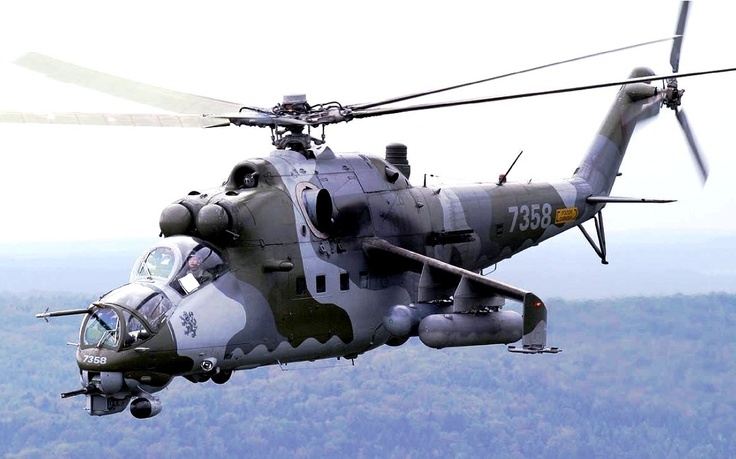
A Russian-built helicopter gunship of the sort purchased during KhartoumŌĆÖs ŌĆ£austerityŌĆØ years (1989 ŌĆō 1999)
For de Waal argues on the basis of such his specious history of Sudanese budgets that ŌĆ£rising budgets increased the chances for a peace agreementŌĆØ with the South. But this is to ignore far too muchŌĆöso much indeed as to make hash of the thesis of de WaalŌĆÖs argument, at least about the┬ĀComprehensive Peace Agree (CPA).┬ĀHe would have us believe that theProtocols┬Āof the CPA grew out of rising ŌĆ£budgetsŌĆØ in Khartoum, despite our lack of knowledge about what was really happening over the years during which these ŌĆ£budgetsŌĆØ were promulgated.
Additionally belying de WaalŌĆÖs thesis is the fact that al-BashirŌĆÖs regime has egregiously violated all the Protocols, most conspicuously┬Āthe Protocol guaranteeing Abyei a self-determination referendum in January 2011.┬ĀBut border delineation, border demarcation, resolution of the crises in┬ĀSouth Kordofan┬Āand┬ĀBlue Nile, power-sharing, and revenue-sharing agreements, agreement to halt military assistance to rogue militias (ŌĆ£Other Armed GroupsŌĆØ/OAG)ŌĆöall have been seriously violated by Khartoum. The South has certainly squandered much of its share of oil revenues by allowing corruption to take such deep hold; but we should also note that surreptitiously Khartoum withheld from the South billions of dollars in oil revenues during the┬ĀInterim Period (January 2005 ŌĆō July 2011).
The CPA came into existence for a wide range of reasons:
┬Ā ┬Ā ┬Ā ŌĆó┬ĀThe superb leadership of Dr. John Garang, SPLA/M Chairman
- The active and substantial diplomatic engagement by the Bush administration, along with the UK and Norway (the ŌĆ£TroikaŌĆØ);
- Growing international pressure on Khartoum over its genocidal counter-insurgency in the Southern oil regions;
- An inability by the SAF, even augmented by militia elements, to fight on two fronts: against the SPLA in the oil regions and the rebel groups of Darfur, which gave the SAF fits for much of 2003, success that ultimately resulted in KhartoumŌĆÖs massive recruitment of the┬ĀJanjaweed;
- The fact that the SPLA had fought the SAF to what was too close to a stalemate for KhartoumŌĆÖs leadership to justify continuing the war (to be sure, this was not a view universally shared within the regime, especially within the military, which felt that far too much was given awayŌĆöand the military is now ascendant within the regime);
The growth in KhartoumŌĆÖs budget as a factor in bringing the CPA into being simply canŌĆÖt be assessed outside these other factorsŌĆöcertainly not without a much clearer picture than we are ever likely to have of what the regimeŌĆÖs actual budgets have been over the past 27 years.
What we can be sure of is that the regimeŌĆÖs budgetsŌĆöreal and nominalŌĆöare now declining significantly, largely because of the massive of loss in oil revenues with the independence of South Sudan. Most conspicuous were the regimeŌĆÖs publicly announced budget cuts in subsidies for food and cooking fuel (September 2013)ŌĆöbudget cuts that produced bloody demonstrations in many locations in Sudan, which were put down only when security forces were given ŌĆ£shoot to killŌĆØ orders, the latter a fact┬Āestablished authoritatively by Amnesty International.
Angry demonstrations began in Khartoum/Omdurman in late September 2013, and quickly spread to other cities and towns
Corpses photography surrepticiously in a Khartoum morgue, September 2014; more than 200 people were shot to death in Khartoum/Omdurman; country-wide, perhaps 1,000 people were killed during the uprising
The current economic implosion in Sudan has seen a growth in food shortages, especially bread; skyrocketing prices for food in many locations; water shortages, chiefly because the regime has made no significant investment in the water delivery infrastructure for a quarter of a century; shortages in refined petroleum products, chiefly cooking fuel but at times also diesel fuel. Unrest is again growing, and this confronts de Waal with an unhappy corollary to his argument about ŌĆ£rising budgetsŌĆØ in African countries making peace more likely: by the same logic,┬Ādeclining┬Ābudgets must make peace┬Āless┬Ālikely. And one need only survey what is currently occurring in┬ĀDarfur,┬ĀSouth Kordofan,┬ĀBlue Nile, and┬ĀAbyei┬Āto see that there is no peace in the offing in Sudan.
Feeding children in the Nuba Mountains is definitely not part of KhartoumŌĆÖs budget; on the contrary, the regime continues with a brutal, five-year humanitarian embargo on the region
Yet despite all this, the┬ĀCentral Bureau of Statistics┬Ācontinues to churn out benign monthly reports on the inflation rate and says nothing that can be trusted about the desperate lack of foreign exchange currency (Forex). And the IMF and much of the international community continue to accept this statistical garbage as representative of economic conditions in Sudan. The simple truth is the except for occasional infusions of cash from Arab countries, notably┬ĀQatar┬Āand more recently┬ĀSaudi Arabia, there is no ForexŌĆöor enough for only a month or two of imports, even of the most vital goods, including medical goods and pharmaceuticals. The vast gap between the┬Āofficial exchange rate┬Ā(Sudanese Pounds per dollar) and the┬Āblack market (ŌĆ£parallel marketŌĆØ) rate┬Āis only the most conspicuous sign of a massive shortage in Forex. In recent weeks demonstrations have become more vigorous and widespread among university students. The regimeŌĆÖs clampdown on press freedoms tightens by the day. If the demonstrations grow in intensity, and repression and denial of free expression become more severe, widespread civil conflict becomes increasingly likely.
Why This Regime Survives
What prevents complete collapse of the economy is continuing and warming embrace of the┬ĀNational Islamic Front/National Congress Party regime┬Āby the international community. In the case of┬ĀEuropean countries, much of this is directly tied to fear of a large refugee inflow originating in Sudan. The consequences of this embrace I trace in two analyses (the first two of a three-part analysis):
ŌĆ£The International Embrace of Khartoum Deepens: With what consequences for Sudanž¤┬ĀIntroduction and overviewŌĆØ (first of three parts) | March 31, 2016 |┬Āhttp://wp.me/p45rOG-1Sfhttp://wp.me/p45rOG-1Sfhttp://wp.me/p45rOG-1Sf
ŌĆ£The International Embrace of Khartoum Deepens: With what consequences for Sudanž¤ Introduction and overviewŌĆØ (part two┬Āof three) | April 18, 2016 |http://wp.me/p45rOG-1SOhttp://wp.me/p45rOG-1SOhttp://wp.me/p45rOG-1SO
If we want to know about why such an embrace might be occurring, we might look again at the spectacle of a prominent ŌĆ£Sudan expertŌĆØ jesting ironically in Tana, Madagascar with Omar al-Bashir, for whom the┬ĀInternational Criminal Court┬Āhas served arrest warrants, charging him with multiple counts of genocide and multiple counts of crimes against humanity.
Appendix A:
from ŌĆ£The Economics of Genocide in Sudan:┬ĀWhere oil revenues do and donŌĆÖt goŌĆØ:┬ĀThe failure of IMF oversight in the face of continuing┬ĀAsian and European investment in human destruction
Eric Reeves |┬ĀAugust 26,┬Ā2005┬Ā┬Ā|┬Āhttp://wp.me/p45rOG-ozhttp://wp.me/p45rOG-ozhttp://wp.me/p45rOG-oz
Largely obscured in accounts of the Darfur crisis is a clear macroeconomic view of the financial, commercial, and investment realities that sustain genocide [in Darfur]. While considerable attention has been devoted to growing regional competition for the scarce natural resources in Darfur (chiefly arable land and water), and to the impact of widening desertification throughout the Sahel and the consequences of drought, very little attention has been paid to those economic realities that explain KhartoumŌĆÖs ability to conduct serial genocide in Sudan. The jihad against the people of the Nuba Mountains, beginning in 1992; the scorched-earth clearances directed against the indigenous (largely Nuer) populations of the oil regions in southern Sudan and border areas, beginning in 1997; and the current genocide in Darfur, beginning in 2003: all were financed by KhartoumŌĆÖs National Islamic Front/National Congress Party (NIF/NCP) at the economic expense of SudanŌĆÖs marginalized peoples.
The NIF/NCP is insulated from the consequences of its gross mismanagement of the Sudanese economyŌĆöincluding responsibility for an external debt that is one of the worldŌĆÖs very largest on a per capita basisŌĆöby oil revenues, by a lack of meaningful international oversight, and by ongoing commercial investments in the Khartoum region from a wide range of European and Asian companies.
But current financing of genocide in Sudan derives chiefly from oil revenues that officially began to flow in August 1999. These revenues now exceed $2 billion per year, according to the estimate of a well-informed Sudan oil analyst. What is not sufficiently recognized is that for several years before the first export shipment of crude oil left Port Sudan, Khartoum had been engaged in substantial in-kind trading with China: future oil and anticipated oil revenues in exchange for Chinese arms, especially tanks, but also combat aircraft, armored personnel carriers, and substantial medium-sized weaponry; China was also KhartoumŌĆÖs primary supplier of small arms.
Chinese arms continue to be used by KhartoumŌĆÖs military forces, not only in Darfur (by both the regular army and the paramilitary Janjaweed) but by the NIFŌĆÖs military proxies in southern Sudan, grouped loosely under the banner of the ŌĆ£South Sudan Defense Forces.ŌĆØ A number of these militias continue to be heavily armed by Khartoum, and recent reports from well-placed observers suggest that serious violence may be impending in the┬ĀMalakal area of Upper Nile┬ĀProvince (the province in which the oil reserves are concentrated). Fighting has been heavy at times since the signing of the┬ĀComprehensive Peace Agreement┬Ā(CPA; January 9, 2005), which calls for the disarming of these militias within the first year.
But far from disarming the militias, the NIF/NCP appears intent on retaining them as military proxies, and the potentially explosive fighting in the Malakal area pits militia forces loyal to the NIF against those militias that are attempting to join the Sudan PeopleŌĆÖs Liberation Movement/Army (one of the options guaranteed under the CPA). The involvement of the NIFŌĆÖs Military Intelligence in new militia deployments is extremely ominous.
Additionally, Chinese arms design and engineering assistance have allowed the NIF/NCP over the past six years to become largely self-sufficient in the production of small- and medium-sized weaponry. Military production at such locations as the vast GIAD industrial complex outside Khartoum (with both commercial and military production capabilities) is now enormous, though we have little way of ascertaining just how great a percentage of national wealth is consumed by arms manufacture.
THE IMF: NO SERIOUS ECONOMIC SUPERVISION
Here the International Monetary Fund (IMF) is exemplary in revealing just how little serious attention has been devoted to the relationship between SudanŌĆÖs economic realities and the NIF/NCPŌĆÖs ability to conduct genocide.
Because of SudanŌĆÖs staggering external debt (see below), the NIF has been forced to accept bi-annual IMF reviews, which are suitably published in lengthy PDF documents, with abundant graphs and charts, and written in dispassionate ŌĆ£bureaucratese.ŌĆØ But a careful reading of these documents suggests that for all their high-toned production values, they are hollow at the coreŌĆörefusing to speak to the issues of most significance. An historical example here is suggestive.
A very lengthy (and confidential) IMF report tabled on November 20, 2000┬Āmanages to devote to the issue of military expenditures (and their impact on the economy the IMF purports to analyze) precisely┬Āone┬Āline item in┬Āone┬Āchart (Table 2, page 9). But even this single line item is enormously revealing. In the course of offering an overview of the NIF/NCP regimeŌĆÖs budget for the years 1998 to 2000, the IMF (under the heading ŌĆ£Memorandum itemsŌĆØ) offers a summary of specifically ŌĆ£Military expendituresŌĆØ (sources are given as ŌĆ£Sudanese authorities and IMF staff estimatesŌĆØ).
The┬Āfigure for 1998 is 42.8 billion dinars, or roughly $170 million┬Āat the time; for┬Ā1999 the figure is 62.2 billion dinars, or roughly $250 million; and for┬Ā2000, the Government of Sudan figure indicated is 84.1 billion dollars, or roughly $340 million dollars. The military budget doubled in the time between the year before oil revenues began to flow and the year following the start of oil-revenue income. (1998┬Āis also of note because it represents the year in which┬ĀCanadaŌĆÖs Talisman Energy┬Ābecame a 25% partner in the southern oil-producing consortium, providing shameful Canadian moral cover for savagely rapacious activities and continuing scorched-earth clearances in the region.)
The cause/effect relationship between oil revenues and the military instruments of genocidal destruction could not be clearer. Moreover, the IMF made no effort to gather a full account of NIF/NCP military expenditures. There was no inclusion of the well-documented ŌĆ£in-kindŌĆØ trading (weapons for oil/anticipated oil revenues) between China and Sudan. And the IMF figure for military expenditures did not include the enormous fuel bill for military activities, or dual-use (military/commercial) construction and manufacturing, or the financial deals made with the militias to keep ethnic animosities in southern Sudan at their most destructive in the oil regions. Nor did ŌĆ£military expendituresŌĆØ include the ŌĆ£paymentŌĆØ to the muraheleen, or Arabized militia, that came in the form of looted cattle and human slaves.
There was and is a great deal that doesnŌĆÖt show up in the sanitized bookkeeping of the IMF, which is most comfortable in a ŌĆ£see no evil, hear no evilŌĆØ assessment posture. But the picture is all too clear: oil revenues sustained genocidal destruction in southern oil fields (and continue to fund the brutal militias of the ŌĆ£South Sudan Defense ForcesŌĆØ), and they now provide the military hardware and military/militia salaries that sustain genocide in Darfur.
This writer was harshly critical of the┬ĀNovember 2000 IMF ŌĆ£Second ReviewŌĆØ report. The response of the IMF to such criticismž¤ By June 2002 IMF reports had unconscionably censored all data on military expenditures:┬Ānot a single line item, in another 60-page report, was given over to the role of such expenditures in the overall Sudanese economy┬Ā(ŌĆ£Sudan: Final Review Under the Medium-Term Staff-Monitored Program and the 2002 Program,ŌĆØ June 4, 2002). The same was true of the October 2003 IMF report, which despite dozens of pages of graphs and charts had┬Ānot a single reference or number attached to military expenditures┬Ā(ŌĆ£Staff Report for the 2003 Article IV Consultation,ŌĆØ October 20, 2003).
This occurred even as the IMF projected yet greater increases in SudanŌĆÖs external debt (from $20 billion in 2000, to $24.2 billion for 2003, to $25.1 billion for 2004; Table 3, ŌĆ£Selected Economic, Financial Indicators, 2000-04,ŌĆØ Staff Report for the 2003 Article IV Consultations, October 20, 2003).
Such whitewashing is utterly disgraceful, and the perfect example of how the international community refuses to acknowledge the role between macroeconomic realities, including unsustainable external debt, and genocidal ambitions.
Even so, the mismanagement of the Sudanese economy by the NIF/NCP (which is responsible for the vast majority of the countryŌĆÖs massive external debt) is evident from other parts of IMF reports.┬ĀThe November 2000 ŌĆ£Second ReviewŌĆØ was unusually frank in speaking about a critical failure to capitalize adequately the agricultural sector.┬ĀHere it is important to understand that Sudan is a huge land mass, with vast tracts of arable land; some have argued the country could become the ŌĆ£breadbasket of Africa.ŌĆØ
But as the IMF noted, ŌĆ£in 2000 [there was] an increasingly critical shortfall in credit to the agricultural sector during the key planting seasonŌĆØ [page 13].┬ĀA regime that was at the time receivingŌĆöwith the spike in oil pricesŌĆöroughly $500 million in new oil revenues annually failed to capitalize adequately its agricultural sector.
When we survey the current massive international effort to┬Āprovide food for 3.5 million people in Darfur, and when we look honestly at rapidly deteriorating food security in Bahr el-Ghazal and Upper Nile Provinces in southern Sudan, we should be asking forcefully about the failure of the NIF/NCP to provide food for its own civilians, and the grotesque substitution of military purchases for investment in agricultural production. As the┬ĀUN World Food Program┬Ārecently warned:
At the height of the annual ŌĆśhunger gapŌĆÖ and rainy season, the UN World Food Program is particularly concerned about the chronically impoverished regions of Bahr El Ghazal in the South, and the Kordofans in central Sudan and Red Sea State and Kassala in the East. Inter-agency rapid needs assessment missions earlier this year confirmed that food security was poor in many parts of southern, central and eastern Sudan. Nutrition survey results are consistently reported [NB] above the threshold indicating an emergency.
In Upper Nile State, preliminary result of a nutrition survey in June [ ] showed global acute malnutrition among children under five was 39.3%, while severe acute malnutrition was 5.9%. (UN WFP press release, August 12, 2005)
The same NIF/NCP regime that has left its agricultural sector badly undercapitalized, and makes virtually no effort to provide food for starving Sudanese children, is currently using oil revenues to purchaseŌĆömost profligatelyŌĆöhighly advanced MiG-29 combat aircraftfrom Russia. Of course there are many other obscenely profligate military purchases by the NIF/NCP, including a considerable number of the┬ĀHIND helicopter gunships┬Āthat are implicated in so much of the human destruction both in the oil regions of southern Sudan and in Darfur.
If the IMF is to fulfill its responsibilities in any meaningful way, these issues should be foremost in any assessment of the Sudanese economy. Instead, we find only bureaucratic indifference and a clear bowing to NIF pressure. What else could possibly account for the deletion of all references to military expenditures in the June 2002 and October 2003 reportsž¤
